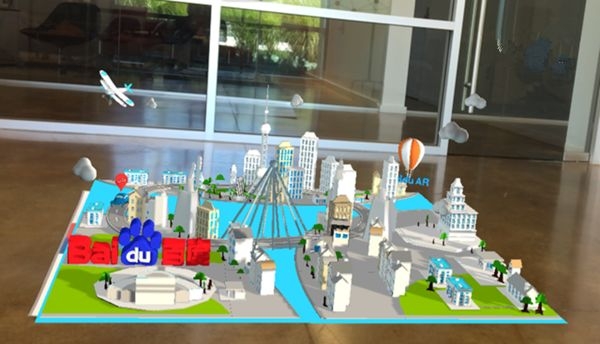
According to media reports, Lin Yuanqing, director of the Baidu Deep Learning Lab recently introduced Baidu's main research directions in artificial intelligence: a deep learning platform, basic image recognition technology, fine-grained image recognition, video analysis, AR technology, and hospital image recognition.
In the basic technology of image recognition, Baidu’s OCR (optical character recognition) technology level has been greatly improved, and the accuracy rate of mobile phone terminal identification has reached over 99%. In addition, Baidu will apply fine-grained image recognition to new features of the Demeter app next month: When the user takes a picture of the dish, Baidu uses the algorithm to recommend to the user the nearby restaurant within 5 kilometers of matching.
Although the Baidu Deep Learning Lab has a wide range of applications in the field of artificial intelligence, there are also some disadvantageous projects, in which the drone projects that are favored by the outside world are cut. Lin Yuanqing believes that despite the potential of the UAV market, Baidu's confusion is how they compete with DJI.
The product positioning of drones is closely related to the usage scenarios it cuts into. In the middle of last year, Baidu United billion airlines launched a drone delivery service. After the user orders from a take-out restaurant that supports drone delivery, the delivery person enters in the App. At the destination of the flight, drones will take delivery to the user. It has been one year since the testing of the drone delivery service took place. According to external sources, from the current environment, the service is a pseudo-demand, and there are problems such as too high costs and uncontrollable factors. Baidu also tried to use drones to map maps in remote areas, but after analysis, it found that the market is not very valuable.

AR technology is the highlight of Baidu. When talking about AR, Lin Yuanqing replied, "It must be able to make money." At present, there is no industry leader such as Dajiang in this market , so the space for Baidu to leave is very large. Earlier this month, Baidu announced DuSE, a mobile AR platform. DuSee uses computer vision and deep learning technologies to understand what is in real-time images. The platform can “understand†the real-world 3D environment through smart phone hardware, enabling mobile phones to use mobile phones. The resulting image interacts with the real world. It is reported that DuSee can be used in interactive advertising, marketing, education, manufacturing, interior design and other fields. In the future, they will also combine AR with speech recognition and natural language processing technologies.

Judging from Baidu's series of actions, its force in the field of artificial intelligence adheres to these three principles: applying AI technology to existing products; chopping off projects with little market value; and avoiding industries with established competitive landscape.
Related Reading
"DuSee is a natural extension of AI", Baidu launched AR Application Platform DuSee
Interview with Baidu Wu Enda: What value does deep learning bring to a company?